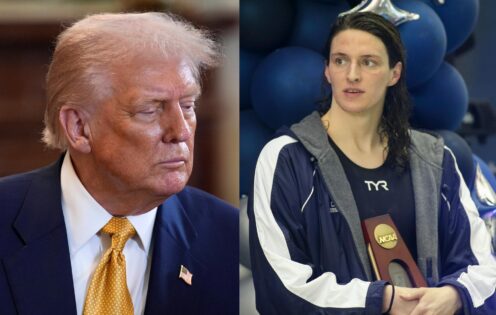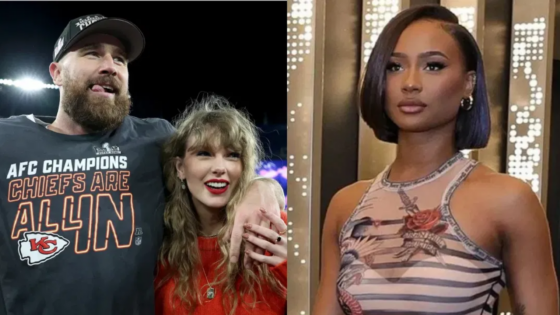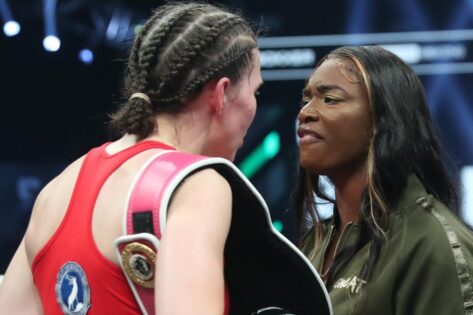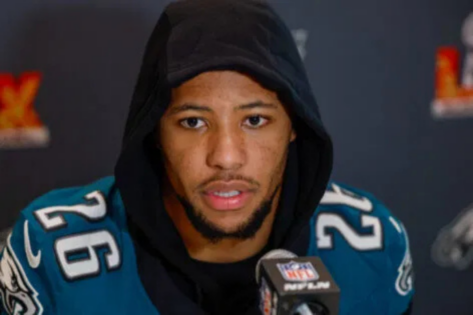“From now on, women’s sports will be only for women.” That’s how former President Donald Trump introduced his new executive order on February 5. Signed on National Girls and Women in Sports Day, the order, titled “Keeping Men Out of Women’s Sports,” seeks to bar transgender women and girls from participating in women’s sports. The order also states that schools that don’t follow the rule could lose federal funding. On top of that, it tells the State Department to pressure the International Olympic Committee to update their own rules, pushing for eligibility to be based strictly on assigned gender at birth, not gender identity or hormone levels.
Now, as the order takes shape, its impact on national and international athletic policies is beginning to surface, sparking a renewed debate over the inclusion criteria in competitive women’s sports.
Just two days after Trump signed the order, the NCAA rolled out new guidelines, and they came with two key points. First, any student-athlete who was assigned male at birth can’t compete on a women’s team. However, those same athletes can still join in on practice sessions with the women’s teams, as long as it matches their gender identity. But that’s where the door shuts. Even if they train or use team facilities, they won’t be allowed to compete in actual women’s competitions. And now, there’s been an even bigger announcement—one that pretty much blocks athletes like Lia Thomas from making it to the U.S. Olympic team.
In alignment with Trump’s recent executive order, the U.S. Olympic and Paralympic Committee moved swiftly. Just days later, on July 22, the update dropped. As reported by USA Today, there’s a key section on page five of the USOPC’s new “Athlete Safety Policy” that reads: “The USOPC is committed to protecting opportunities for athletes participating in sport. The USOPC will continue to collaborate with various stakeholders with oversight responsibilities, e.g., IOC, IPC, NGBs, to ensure that women have a fair and safe competition environment consistent with Executive Order 14201 and the Ted Stevens Olympic & Amateur Sports Act.” And that pretty much said it all. But that’s not where it ends—the latest updates say the USOPC has already started taking more steps to back it up.
Via Instagram @realdonaldtrump
The U.S. Olympic and Paralympic Committee has instructed all National Governing Bodies (NGBs) to align with the new policy. They told the NGBs to fall in line, pointing out that “the USOPC has engaged in a series of respectful and constructive conversations with federal officials” ever since Trump signed the order. In a letter sent by USOPC CEO Sarah Hirshland and President Gene Sykes, they stated that the USOPC has been in communication with federal officials since the executive order was signed. The letter noted, “As a federally chartered organization, we have an obligation to comply with federal expectations. Our revised policy emphasizes the importance of ensuring fair and safe competition environments for women. All National Governing Bodies are required to update their applicable policies in alignment.”
The USOPC oversees about 50 national governing bodies, and these groups handle everything from local sports clubs to elite-level teams. So, if the top changes its rules, it trickles all the way down. That means even local clubs might have to update their policies just to stay in good standing with their NGBs. As a result, local clubs may also need to update their rules to stay aligned with their governing bodies. This could impact athletes like Nikki Hiltz and Lia Thomas. They may not only be excluded from the Olympics, but also from participating in qualifying events.
In addition to this, the word is that World Athletics might be heading in the same direction, as per reports. If that happens, things could get even tougher for transgender athletes worldwide. The rules could tighten up across the board, not just in the U.S. Thus, the coming days might bring a whole wave of stricter actions. But in the middle of all this, one Olympic legend decided to speak up. They didn’t just stay silent—they offered some thoughts on how to handle the situation. Maybe not a full solution, but definitely some words worth paying attention to.
The Olympic legend lends an idea
While transgender representation on Team USA has been limited in past Olympics, recent policy shifts in the U.S. have sparked international discussion. Amid the changes, a notable reaction has come from overseas, offering a perspective that could add to the ongoing debate.
Credit: Instagram/ Lia Thomas
Daley Thompson—the British track and field legend and two-time Olympic gold medalist. He’s been vocal about his stance: he doesn’t support transgender women competing in women’s sports. But he’s not stopping at just criticism—he’s actually pitching an idea. In an interview with GB News, Thompson said, “My belief is that sport should have a women’s section and a new, open class where transgender women would be welcomed and could compete fairly.” Right now? That kind of “open class” doesn’t exist.
But Thompson’s point isn’t just about drawing lines—it’s about finding space for everyone in a way that feels fair. It’s a middle ground some haven’t considered, and while it’s just an idea for now, it could spark something bigger in the future. The question is: will the sports world take that leap? Time will tell.
The post U.S. Olympic Organization to Ban Lia Thomas & Co. as Donald Trump Wants No Changes in Recent Decision appeared first on EssentiallySports.



